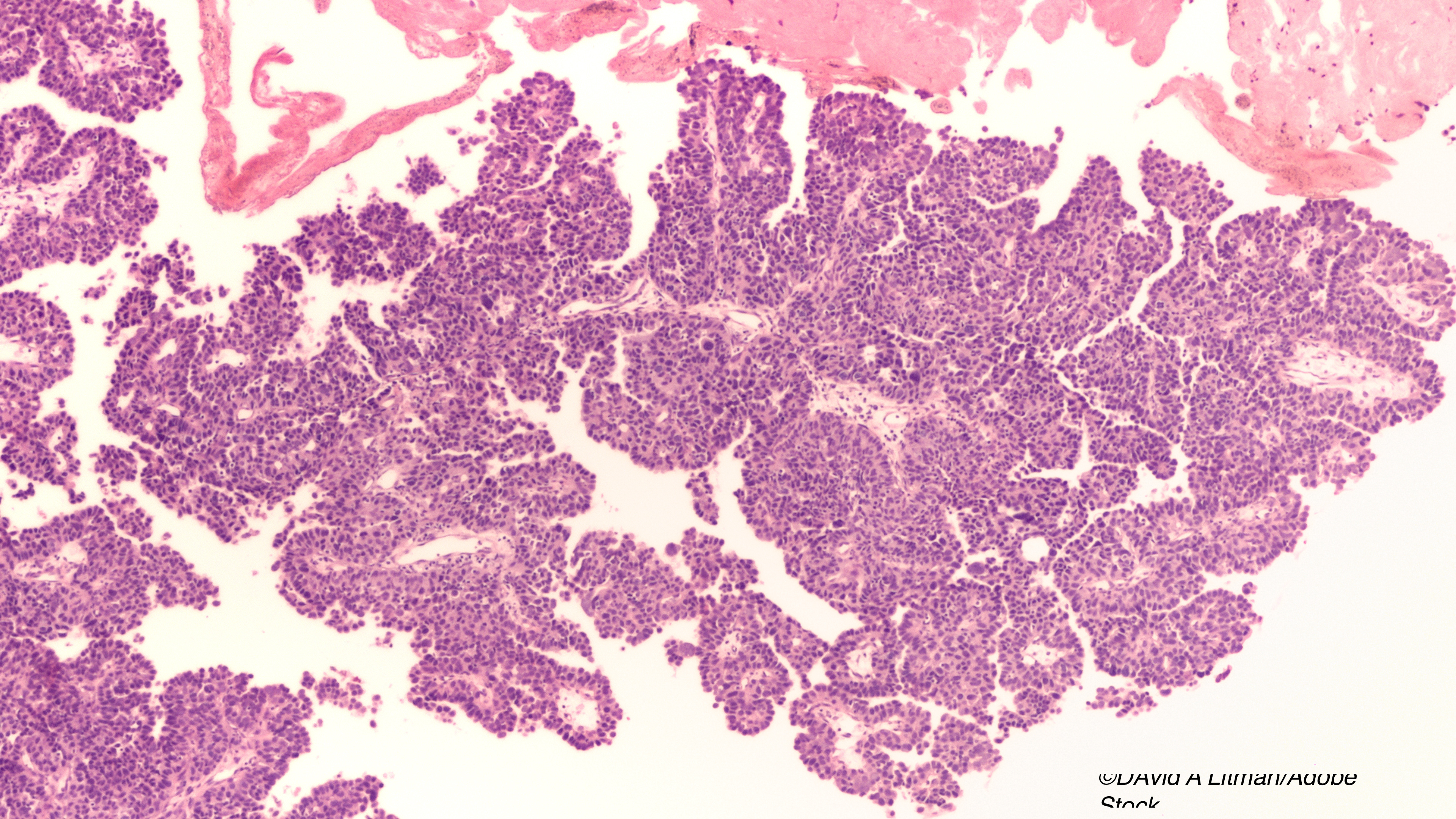
The FDA gave accelerated approval to intravenous sacituzumab govitecan-hziy (Trodelvy) to treat patients with locally advanced or metastatic urothelial cancer (mUC) who were previously treated with a platinum-based chemotherapy and a programmed death receptor-1 (PD-1) or programmed death-ligand 1 (PD-L1) inhibitor.
Sacituzumab govitecan-hziy, a Trop-2-directed antibody and topoisomerase inhibitor conjugate, was originally approved in 2020 to treat unresectable locally advanced or metastatic triple-negative breast cancer among patients who had received at least two prior systemic therapies. This latest approval, the FDA explained, was based on the tumor response rate and duration of response demonstrated in the TROPHY trial — the drug’s continued approval is contingent on verification and description of clinical benefit in a confirmatory trial.
The TROPHY trial was a single-arm, multicenter study involving 112 patients with locally advanced or mUC who received previous treatment with a platinum-based chemotherapy and either a PD-1 or PD-L1 inhibitor. These patients were given sacituzumab govitecan, 10 mg/kg intravenously, on days one and eight of a 21-day treatment cycle, the agency explained.
“The main efficacy endpoints were objective response rate (ORR) and duration of response (DOR), evaluated by independent review using RECIST 1.1 criteria,” the FDA wrote. “The confirmed ORR was 27.7% (95% CI:19.6, 36.9) with 5.4% complete responses and 22.3% partial responses. The median DOR was 7.2 months (n=31; 95% CI: 4.7, 8.6; range 1.4+, 13.7).”
The most common adverse events reported in patients taking sacituzumab govitecan include neutropenia, nausea, diarrhea, fatigue, alopecia, anemia, vomiting, constipation, decreased appetite, rash, and abdominal pain. The drug also carries a Boxed Warning noting that treatment with sacituzumab govitecan can potentially cause severe or life-threatening neutropenia, as well as severe diarrhea.
John McKenna, Associate Editor, BreakingMED™
Cat ID: 120
Topic ID: 78,120,730,120,192,725,925


